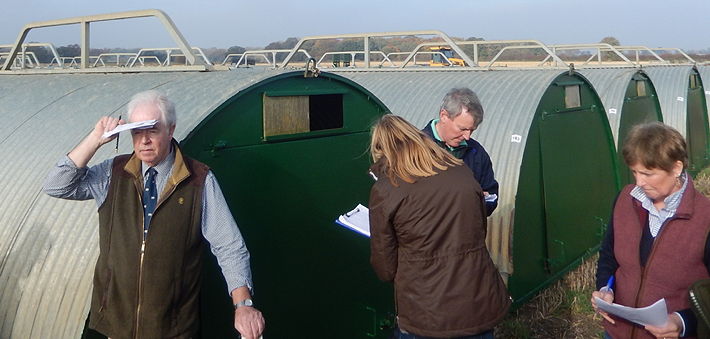Although producers were relieved to see the latest SPP go up by a gnat’s whisker from 200.01p to 200.37p, if the UK pig industry is to get back in the black, we need to see the SPP exceed 230p to match production costs and at the same time for demand for pig meat to improve from its current low levels.
Prices in Europe are also tending to level out with the influential German producer price quoted at 2.00 EUR, which works out at 175p/kg in real money.
UK weekly contribution prices also remain in the doldrums with the big players holding their prices well below the SPP with most between 1.73p/kg and 190p/kg and in school report terms ‘could do better’.
Spot demand is also fickle with consumers holding back on buying meat at a time when demand would normally be improving in the run up to Christmas. Lighter spot bacon weights have been quoted in and around 200p/kg, but over weights remain hard to sell trading at 190p/kg or less in some cases.
Imported pig meat is continuing to flow in this direction and undercut the domestic market by a significant amount, which is also putting a lid on prices until the situation changes.
Cull Sows
The value of the Euro has remained at generally similar levels on the week quoted on Friday at 87.5p and as a result cull sow values also stood on with most traded between 74p – 79p/kg.
Although sow prices are better than they were earlier in the year, they are still well behind where they should be putting further financial pressure on pig producers who are already having to cope with the imbalance between feed costs and pig prices.
Weaners
Weaner buyers remain extremely cautious with an indifferent outlook for finished pig prices in the weeks ahead and no sign of any significant reduction in feed costs and in some cases weaner contracts have had to be renegotiated to keep the wheels turning.
Feed Market Trends
The pig industry continues to pay the price for the military situation in Ukraine where cereal and protein prices remain highly volatile, although values have eased a shade in some sectors and the latest weekly UK spot ex farm feed wheat average price is down by £5/t at £269.10/t.
Futures markets have also reflected a very slightly easier trends but not enough to make much difference to farmers’ profit & loss accounts, with feed wheat for November delivery traded at £282/t and for September 2023 £272/t. Feed barley prices have also eased a touch with November at £260/t and September 2023 at £267/t.
Protein values area also reflecting the slight fall in prices with Hipro soya quoted at £496/t for November – April 2023 and longer months saw May – October 2023 at £463/t.. Rapemeal remains expensive with November – January 2023 at £363/t.
And finally…
With Christmas less than three months away producers are advised to book their slaughter pigs in now rather than leaving it to the last minute to keep on top of the numbers, especially if there is an oversupply situation and bottleneck of overweight pigs, which is what happened a year ago as so many in the pig industry know to their cost and bank balances.
Few signs have yet emerged of what level of financial help might be available to those in the pig supply chain and unfortunately as far as the British pig industry is concerned this is very much a case of use it or lose it unless financial help in some shape or form appears on the horizon, which seems highly unlikely at present.




